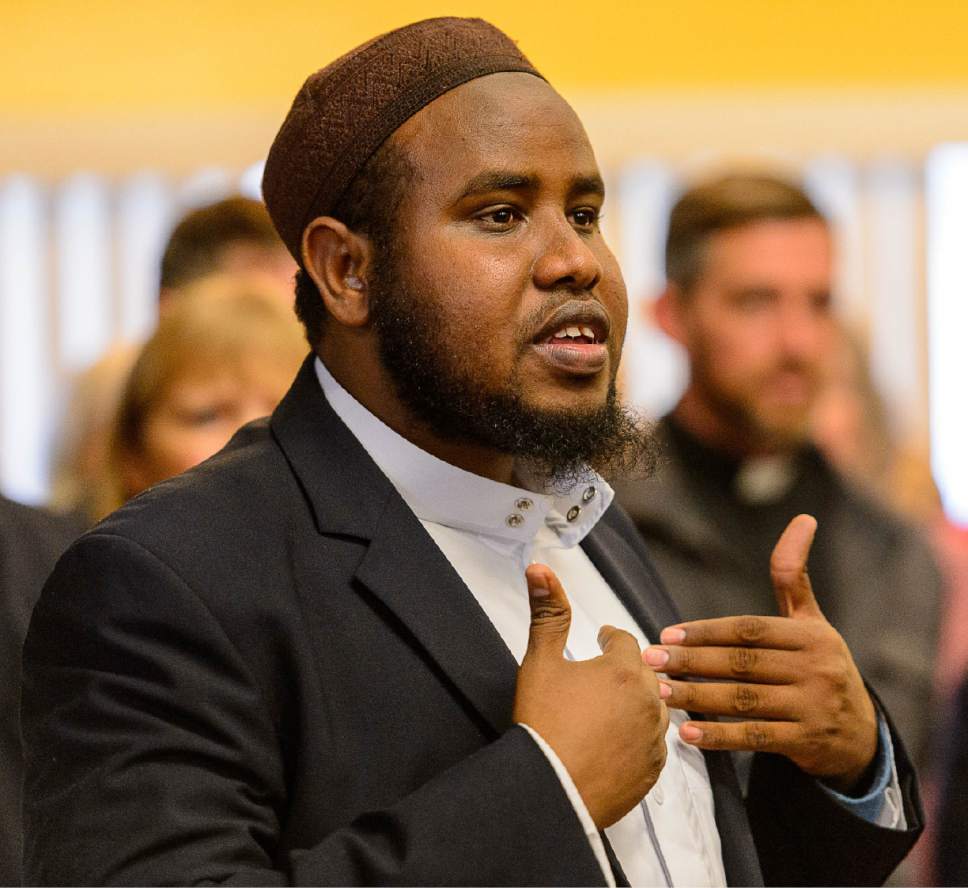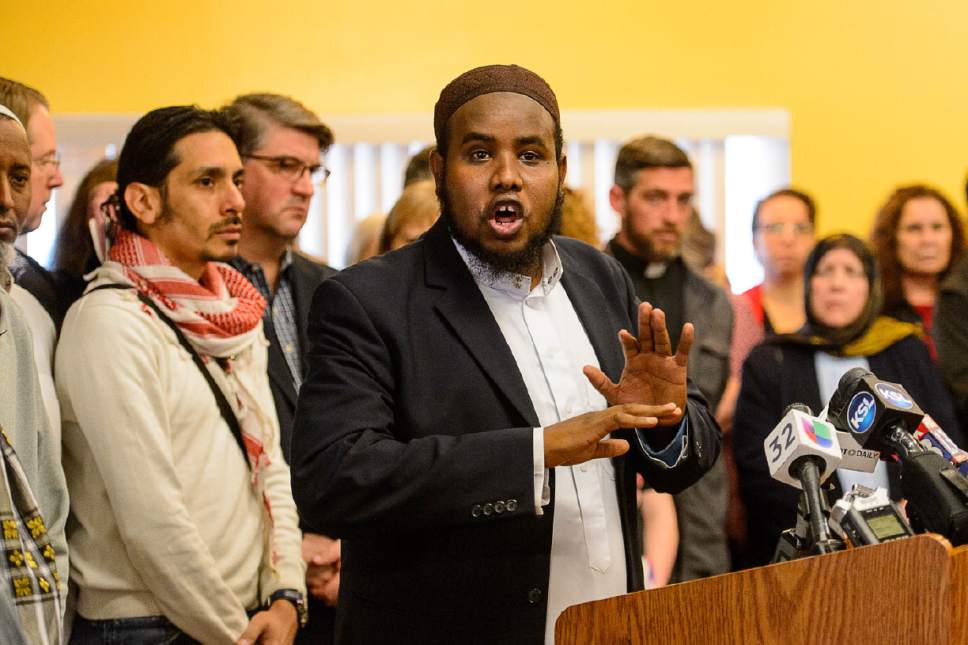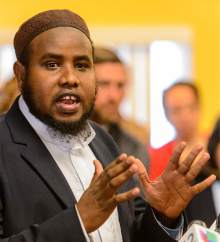This is an archived article that was published on sltrib.com in 2017, and information in the article may be outdated. It is provided only for personal research purposes and may not be reprinted.
A Utah Muslim leader was stranded in Kenya on Wednesday night after he was barred from boarding a return flight to the United States.
Yussuf Awadir Abdi, imam of Salt Lake City's Madina Masjid, traveled to Kenya to pick up his wife and five children. While his family was allowed on the plane back to Utah, Abdi was pulled aside by officials at Jomo Kenyatta International Airport.
"[Qatar Airlines] told him he couldn't board because the U.S. wouldn't accept him," said Jim McConkie, an attorney who co-founded the Refugee Justice League of Utah.
Abdi, though, has been a U.S. citizen since 2010, McConkie said. And Abdi's wife and two of his children have visas; the other three children have passports.
"He wanted to go over there to get his family and bring them back to the United States," McConkie said. "He actually was afraid to go. They're all supernervous."
President Donald Trump's recent immigration and refugee executive orders — that sought to temporarily limit travel to the United States — have been blocked by the courts, so it's unclear why Kenyan officials kept Abdi from his flight. Kenya is also not one of the seven Muslim-majority countries targeted by Trump.
It seems U.S. officials did not make the decision to bar Abdi from returning to the United States, though Trump's order has had that effect in past months. Still, the president's action should have no effect on Abdi, who is a legal immigrant.
The Refugee Justice League, which launched about four months ago, has lawyers in Utah who represent refugees and immigrants for free in cases of discrimination. McConkie got a "panicked call" from Abdi on Wednesday evening and plans to speak with U.S. senators, the local embassy and the Department of Homeland Security to coordinate his return to the state.
"We're going to start pushing all of the buttons that we can to get him out of that country," McConkie said.
In 2005, Abdi left a refugee camp in Kenya with his grandmother, sister and brother. His mother remains in the country — Abdi has been working to get her to the U.S. — and his father was killed in a civil war in Africa. His temporary visa in Kenya will expire shortly, Abdi warned McConkie during their phone call. He has lived in Utah for the past six years.
Noor Ul-Hasan, a Muslim community leader and activist in the state, believes Adbi was barred from his flight because he is an imam. Before he left, Ul-Hasan warned Abdi not to go to Kenya for fear of potential prejudice that may hamper his return.
"This is what I was afraid of," she said. "There's absolutely no reason why he shouldn't be allowed to re-enter."
A Kenyan couple, Ahmed Khamis Bwika and Emma Ondeko Bwika, were detained by U.S. immigration officials in Salt Lake City in March. They agreed to exit the country after losing an appeal of their asylum request. Abdi had talked with news media during the deportation negotiations because the Bwikas had been affiliated with his mosque for 11 years.
At the time, Abdi said: "We think we are being targeted as Muslims."
Twitter: @CourtneyLTanner
Editor's note • An earlier headline for this story erroneously implied that Abdi was in custody in Kenya.







